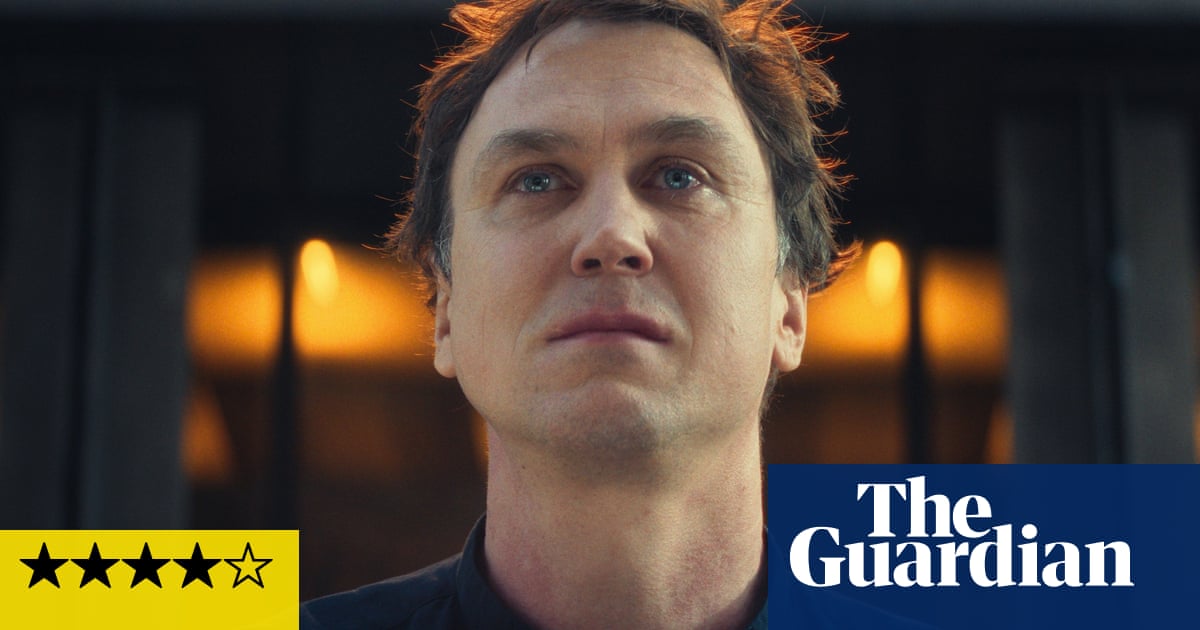Matthias Glasnerâs epic is a black comedy of Franzenesque family dysfunction; maybe not profound exactly but terrifically watchable and entertaining. It is about the time-honoured subject of what we inherit from our parents and what is gained and lost by rejecting that inheritance. The film features that always formidable German actor Lars Eidinger as an orchestra conductor – and it will be no surprise that when he takes to the podium at the Berlin Philharmonic, it is the scene of the biggest and most embarrassing fiasco since Cate Blanchettâs fierce creation Lydia Tár had her own meltdown on the exact same spot two years ago.
Eidinger plays Tom, an emotionally withdrawn figure about to embark on the most serious project of his career. It is a performance of Sterben, or Dying, a piece for orchestra and choir composed by a testy and depressive friend (Robert Gwisdeck) who is always butting in during rehearsals, undermining Tom, insulting the musicians and angrily unable to decide if his work is valuable or worthless kitsch. The film is itself, tellingly, unable to decide either – the one public performance is followed by audience members sounding divided on the subject.
Tom is royally messed up by becoming a quasi-dad, in that his pregnant ex-girlfriend (with whom he is still in love) has asked him to be her birthing partner because she isnât getting the right kind of emotional support from her current boyfriend, whom she has however no intention of leaving. Tom doesnât see much of his sister (Lilith Stangenberg) who herself has musical talent – she has a marvellous singing voice but only lets people hear it when sheâs drunk. She is a dental assistant having an affair with the married dentist – and in her various drunk or hungover states is always in danger of injuring patients while supposedly keeping metal implements steady in their mouths.
Both siblings have inherited their musical ability from their mum Lissy (Corinna Harfouch) who taught herself to play the accordion. Now Lissy is dying of cancer; she also has a bowel condition rendering her incontinent and is unable to care for her husband Gerd (Hans-Uwe Bauer) who has dementia. So their dual illnesses create an explosive family crisis which may or may not cathartically bring them together â because Tom will have to acknowledge that what he has chiefly inherited from his mother is a terrible emotional coldness. A gruesomely funny, painful, confrontational conversation between mother and son reveals that they in fact have always hated each other – from Tomâs earliest childhood in fact – and that for Tom this coolness has been his rocket-fuel, his professional superpower.
Moreover the fact that his parents are dying has not endowed his performance of a musical piece called Dying with any new insight, nor does it really redeem his emotional stagnancy. But it provides a kind of new start – in that the resulting temporary reconciliation with his sister is to bring her into the audience for this public performance, which in turn creates the cataclysm which brings this music, and Tom himself, greater acclaim.
This is a bleak, bold, extravagantly crazy story which is emotionally incorrect at all times. Perhaps it could have been produced as a streaming-TV production but that would have deprived audiences of the pleasures of swallowing it whole, albeit divided into sections introduced by low-tech, Lars Von Trier style chapter headings. Thereâs a lot of life in it.







